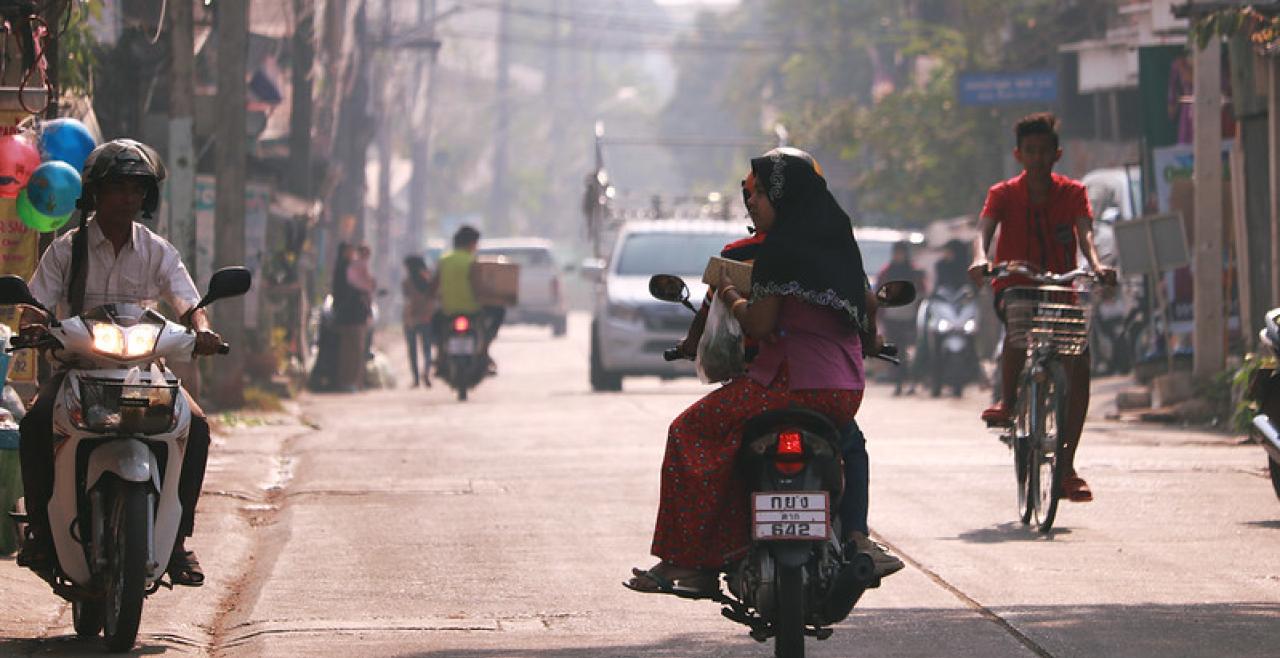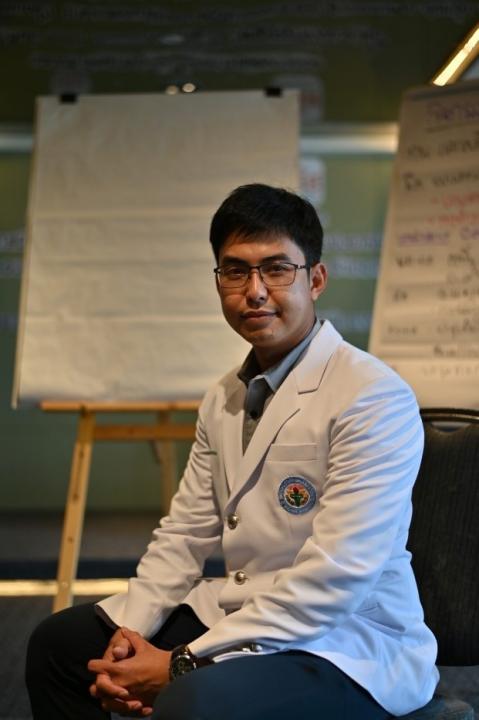In Mae Sot, GBV Taskforce hopes to turn the tide for women migrant workers experiencing violence

MAE SOT, Thailand - In Western Thailand, along the border with Myanmar, the city of Mae Sot has become home to thousands of migrant workers, including ethnic minorities such as Mon, Shan, Karen, Rohingya and Burmese Muslims, among others. Before the country was hit by COVID-19, these migrants were the backbone of the trading economy worth several thousand million Thai Baht.
"I said to myself that if we did not try to eliminate violence against all women, we could not save future generations from violence." - Dr. Somphong Kwanprem, Forensic Pathologist
Women migrant workers who make up about half of the migrant population are vulnerable to violence, harassment and exploitation - not only because of their gender or immigration status, but because they are too often socially excluded or viewed as "other". While the Government of Thailand has continued its efforts to provide social protection coverage for migrant workers, many women migrants still have limited access to these safety nets.
During the pandemic, women migrants who engaged in informal work were the first to be laid off without subsidy. Undocumented women migrant workers were not entitled to any benefits and faced greater risks of violence. Moreover, once they have experienced violence or exploitation, they face a huge barrier to accessing essential services and are subject to charges under immigration law.
“Two years ago, I came across a case of a woman migrant from Myanmar being stabbed a hundred times by her intimate partner," says Dr. Somphong Kwanprem, a forensic pathologist from Mae Sot Hospital. "I said to myself that if we did not try to eliminate violence against all women, we could not save future generations from violence. It was why I got involved in the Gender-Based Violence (GBV) Taskforce.”
Guided by the relevant international standards, including the Convention on the Elimination of All Forms of Discrimination against Women (CEDAW), the Spotlight Initiative-supported Safe and Fair Programme has supported the strengthening of taskforces and coordinated services to respond to violence against women migrant workers. Safe and Fair has worked together with Rights Beyond Border (RBB), the Migrant Women Project (MWP), Mae Sot Hospital, and the networks of GBV taskforces in Mae Sot, Chiang Mai and Bangkok to establish helplines, better coordinate services, and offer GBV training to frontline service providers and networks of migrants.
"I hope that we will gradually change the norms and perceptions of the authorities, as well as ensure migrant-friendly and survivor-centred services." - Dararai Raksa, Migrant Women Project Coordinator
Since 2021, information on gender-based violence and how to seek help has reached more than 5000 women migrant workers through outreach activities, social media and the distribution of a safety planning and service directory. This led to more than 200 women migrant workers, many of them without official nationality or regular immigration status, accessing counselling services and being referred to other essential services in the health, social, and justice sectors.
In July 2022, 13 essential services providers, including Mae Sot Hospital, the Local Government Administration, the Public Prosecutor’s Office, Provincial Social Development and Human Security, Mae Sot Police, Migrant Women Project (MWP), Rights Beyond Border (RBB), Freedom Restoration Project (FRP), and other NGOs in Mae Sot signed a Standard OperatinG Procedure to respond to violence against all women, including women migrant workers.
“With the agreed standards to respond to violence without leaving anyone behind, I hope that we will gradually change the norms and perceptions of the authorities, as well as ensure migrant-friendly and survivor-centred services for all women who experience violence, regardless of their immigration status or ethnic background,” says Dararai Raksa, Migrant Women Project Coordinator.
Safe and Fair is part of the multi-year Spotlight Initiative to Eliminate Violence Against Women and Girls, a UN initiative which has received generous support from the European Union. In ASEAN, the initiative is implemented by ILO and UN Women in collaboration with UNODC.
By Kohnwilai Teppunkoonngam

